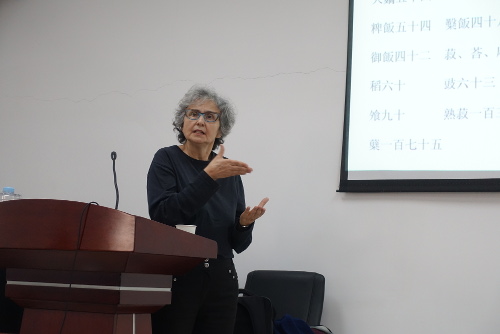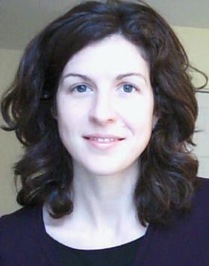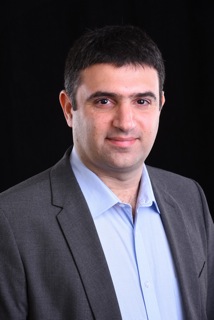
Conférences plénièresKarine Chemla (CNRS, SPHERE, France) Quantities, standards, measurement and computation. Views from mathematical sources from the ancient world Quantities can be assessed using either measurement procedures, or mathematical computations, or even a mixture of the two. We are today quite accustomed to equate the expressions of quantities yielded using these various types of procedures. However, these procedures involve operations and entities of very different kinds: concrete, practical measurement procedures involving instruments and standards, on the one hand, and mathematical calculations on the other. As a result, expressions of quantities of the same type are shaped differently, and accordingly present differences.
Karine Chemla est directrice de recherche au CNRS, au laboratoire
SPHERE (Univ. Paris Diderot). Elle se concentre, d'un point de vue
historico-anthropologique, sur les relations entre les mathématiques et les
cultures au sein desquelles elles sont pratiquées. Elle a dirigé The
History of Mathematical Proof in Ancient Traditions (Cambridge University
Press, 2012); Texts, Textual acts and the History of Science (avec J. Virbel,
Springer, 2015); The Oxford Handbook of Generality in Mathematics and
the Sciences (avec R. Chorlay and D. Rabouin, Oxford University Press,
2016); et Cultures without culturalism: The making of scientific knowledge
(avec Evelyn Fox Keller, Duke University Press, 2017).
Wendy S. Parker (Univeristé de Durham, Royaume Uni) Measuring via computer simulation? In a classic paper, Dudley Shapere (1982) argued for extending the philosophical concept of observation beyond its previous associations with perception, to allow for observation by or with scientific instruments. His discussion took as its starting point a somewhat curious claim made by astrophysicists: that they could ‘directly observe’ the center of the sun using complex instrumentation located beneath earth’s surface. Today, scientific discourse once again prompts philosophers to reflect upon the scope of observation and measurement: in various fields – including computational chemistry, climate science and others – scientists now speak of ‘observing’ or ‘measuring’ the world via computer simulation. What are we to make of this? Is it just loose talk? Does it signal a need to further extend our philosophical concepts of observation and measurement? To what extent can ‘observing’ and ‘measuring’ practices involving computer simulation be accommodated by existing philosophical concepts? This talk will explore these questions.
Wendy Parker est Professeur Associée de Philosophie et Directrice Associée
du Centre for Humanities Engaging Science and Society (CHESS) à l'Université de
Durham, Royaume-Uni. Ses recherches portent sur des questions en épistémologie
des sciences contemporaines, en particulier des sciences du climat, avec un accent
sur les pratiques de simulation numérique. Ses travaux ont été publiés dans de multiples
revues, à la fois en philosophie des sciences et en météorologie / sciences du climat.
Elle est actuellement co-directrice-en-chef (avec Steven French) du British Journal for
the Philosophy of Science.
Oliver Schlaudt (Université de Heidelberg, Allemagne) “Who is there that doesn't calculate?” The homo economicus as a measuring instrument In this talk, I will provide an overview of questions related to measurement in current economic theory and economics-based policy. I will make the claim that the infamous “homo economicus” does not simply provide a model for economic behaviour, as is usually assumed, but that he is used at many occasions as a measuring device. This is especially the case when there is no market so that prices have to be produced artificially, as for example the prices for human or natural capital in the framework of national accounting and cost benefit analyses (the same holds for non-monetary indicators that are functionally equivalent to prices, such as performance indicators in the framework of New Public Management). Oliver Schlaudt est professeur associé au département de philosophie de l'Université de Heidelberg, Allemagne. Ses recherches principales portent sur la philosophie des sciences naturelles et sociales, avec un intérêt particulier envers la mesure et la quantification. Il a organisé avec Alfred Nordmann le colloque Dimensions of Measurement qui a eu lieu à Bielefeld en 2013.
Eran Tal (Université McGill, Canada) Measurement, Prediction and Coherence Measurement and prediction are traditionally viewed as two distinct kinds of activity: measurement provides answers to questions about actual states of nature, whereas prediction extracts hypothetical consequences from a theory or model. This distinction is overly simplistic, and ignores the central role prediction plays in measurement. Measurement outcomes are selected based on their ability to maximize the predictive accuracy of a model of the measurement process, as well as the predictive scope of background theories. This implies a more nuanced, coherentist picture of the relation between prediction and measurement than the traditional picture suggests.
Eran Tal est Professeur Assistant de philosophie à l'Université McGill. Jusqu'en
2016, il était détenteur d'une bourse Marie Curie au Département d'Histoire et
Philosophie des Sciences à l'Université de Cambridge. Il détenait auparavant une
bourse Alexander von Humboldt à l'Université de Bielefeld en Allemagne. Il a
obtenu son doctorat en philosophie à l'University de Toronto en 2012. Ses travaux
se concentrent sur les concepts et problèmes associés à la conception, la manipulation
et l'interprétation des procédures de mesure dans les sciences naturelles et sociales.
Il est l'auteur de l'entrée “Measurement in Science” dans la Stanford Encyclopedia
of Philosophy, ainsi que d'articles publiés dans the British Journal for the
Philosophy of Science, Measurement, Philosophy of Science, Studies in History
and Philosophy of Science, et Synthese.
|




